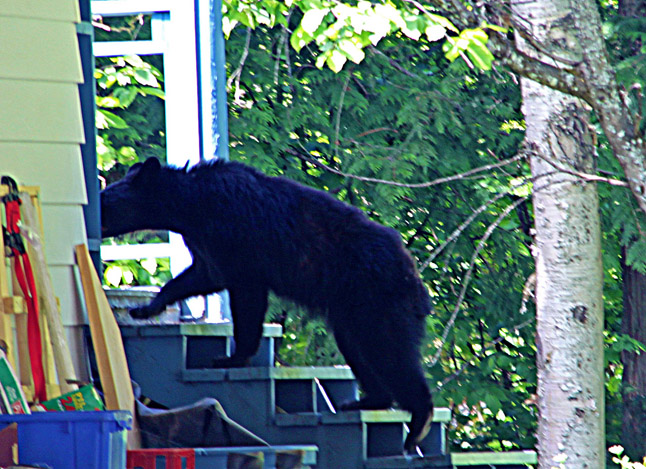
One bear was recently destroyed in Revelstoke even though bear-related calls are, on average, down across BC. Still, WildSafeBC is warning British Columbians that the active fall season is about to heat up with regards to human-bear conflicts.
Revelstoke WildSafeBC coordinator Sue Davies told The Current a large black bear was shot and killed in Arrow Heights on September 18.
“This bear had become less afraid of humans and more aggressive, which is typical of a bear that is conditioned to eating human food,” she said.
Frank Ritcey, provincial coordinator for the WildSafeBC program (which replaced Bear Aware last year) said bear-related calls to the Conservation Officer Service Reporting line are down around 20%.
“However, that could all change with the fall season,” he said in a statement. “Natural forage has been good with a long, wet spring and pleasantly mild summer but the recent wet and cold weather could have reduced the availability of natural foods.”
Bears are entering a phase of their yearly cycle called “hyperphagia” a time when they can take in up to 20,000 calories in a single day. It is during this period that they create great stores of fat to make it through their winter hibernation period.
“Garbage, unpicked fruit, bird feeders, pet food, outdoor freezers, and small livestock all become targets for the bears,” Ritcey warned in his statement. “Preventing bears from accessing these attractants will help to keep the wildlife wild and our communities safe.”
Since the inception of Bear Aware (the fore-runner of WildSafeBC) the annual destruction of bears in BC has dropped from about 1,000 animals a year to approximately 500 animals a year.
WildSafeBC is a program run by the BC Conservation Foundation and more information about the program can be found at wildsafebc.com or facebook.com/wildsafebc
You can reach Sue Davies, the local WildSafeBC community coordinator, at 250-837-8624 or, for more information on managing wildlife attractants, go to www.bearaware.bc.ca. If you have any concerns regarding wildlife please call the RAPP line at 1-877-952-7277.



